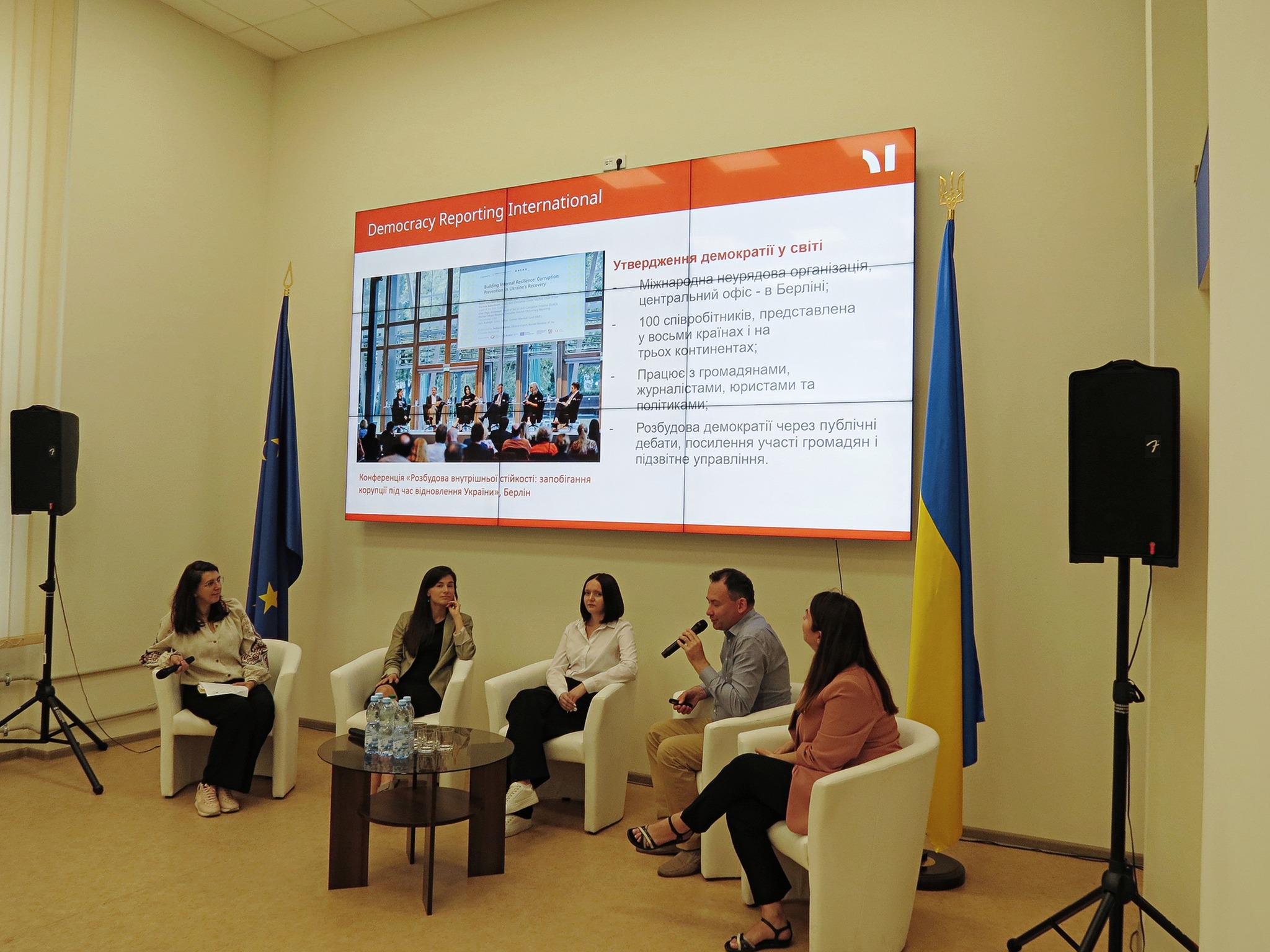The Second School of Administrative Procedure took place on July 11–12 in Lviv, bringing together representatives from leading law schools across Ukraine, Supreme Court judges, and international experts from Latvia.
This event served as an intellectual platform for in-depth discussions on significant legal issues, including approaches to distinguishing between public and private law, the application of Ukraine’s Law on Administrative Procedure to matters such as access to regulated professions, services of general economic interest, and the monitoring of business activities by government authorities.
Attendees included representatives from Ukraine’s major law schools, judges of the Supreme Court’s Administrative Cassation Court, judges from appellate administrative courts, and officials from the Ministry of Justice of Ukraine and the Secretariat of the Cabinet of Ministers of Ukraine.
Foreign experts Jauntrite Briede, Judge of the Constitutional Court of Latvia, and Juris Stinka, lead expert of the EU’s EU4PAR2 project, shared insights with Ukrainian colleagues on implementing and applying administrative procedural law within EU member states.
“The event fostered exchanges among academics and instructors from Ukraine’s top legal institutions, who shared their perspectives on the role and importance of the administrative procedure,” stated Iryna Boiko, an administrative law expert, Ph.D. in law, and associate professor at the Administrative Law Department of the Yaroslav Mudryi National Law University. “Such academic gatherings contribute to a shared understanding of complex administrative law issues and solutions for practical challenges. This collaboration is also invaluable for the educational process, enabling us to integrate current, significant administrative law topics into legal education programs.”
“The event was particularly interesting, as it included not only state officials but also scholars from high-level legal institutions and members of the judiciary. This diversity allowed us to gain broader perspectives beyond the public service,” said Oleksandr Kamenchuk, head of the Expert Group on Administrative Services and Procedures at the Secretariat of the Cabinet of Ministers of Ukraine (SCMU).
“We need more such events, particularly in smaller towns and regional centers, where there is often less awareness about this Law. Implementing the Law on Administrative Procedure is crucial to Ukraine’s integration plan under the Ukraine Facility program. Increasing awareness among public servants, local government officials, businesses, and NGOs is essential.”
The event was held in partnership with the EU project “Support for the Comprehensive Public Administration Reform in Ukraine” (EU4PAR2), the Ministry of Justice of Ukraine, and the Faculty of Law at the Ivan Franko National University of Lviv.
Background
The Law “On Administrative Procedure,” effective from December 15, 2023, introduces new general rules governing interactions between administrative bodies and citizens and businesses. Key provisions include:
For Citizens and Businesses
The right to approach any government authority for services under a general procedure, regardless of the service type.
The right to a hearing if a potentially adverse decision is imminent, with the opportunity to provide further explanations, documents, or evidence.
The right to participate in the case review if it may lead to an adverse decision.
Involvement of interested parties whose legitimate interests are affected, following the principle of “nothing about you without you.”
Access to case materials for all participants, excluding legally protected information.
The ability to correct application errors while retaining the initial submission date.
For Government Bodies
A more effective method for administrative appeals, including pre-judicial settlement options with a collegial approach to complaints and potential public involvement.
Mechanisms to withdraw or nullify decisions, including permits.
Conflict of interest prevention through recusal and self-recusal mechanisms.
An obligation to rectify its mistakes without awaiting complaints or lawsuits.
Autonomous collection of information: administrative bodies cannot demand information already held by themselves or other authorities.
Required justification for adverse decisions, including reasons, burdens, and information on how to appeal.
Reduced bureaucracy through interagency data exchanges using existing state registers.
An online course, “General Administrative Procedure,” is available for public officials, offering a certificate and 0.2 ECTS credits upon completion. Registration is available here.





